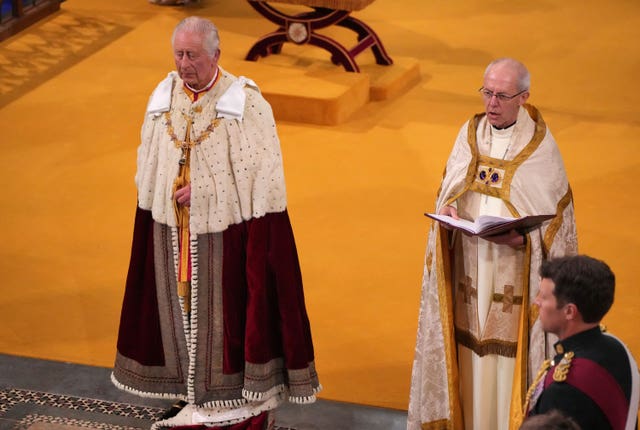Archbishop of Canterbury Justin Welby is quitting after coming under sustained pressure over his handling of a Church of England-linked abuse case.
The independent Makin Review concluded that barrister and Christian camp leader John Smyth might have been brought to justice had the archbishop formally alerted authorities in 2013.
– Who appoints the archbishop?
The King – the defender of the faith and supreme governor of the Church of England – formally appoints archbishops, bishops and deans.
Mr Welby sought permission from the King before he announced his intention to resign.

The Crown Nominations Commission (CNC) is responsible for appointing the next archbishop, but a period of consultation is first needed to set up this body.
The CNC examines the candidates, holds interviews, and puts forward a name to the Prime Minister, who then passes it to the King.
It had been tradition for two names to be put to the Prime Minister – a preferred candidate and an alternative – but that is said to have ended during Gordon Brown’s premiership.
There will be 17 voting members of the CNC: an Anglican in public life chosen by the Prime Minister, a bishop, the Archbishop of York, three representatives elected from the Diocese of Canterbury, six from the General Synod – three ordained and three lay – and five Anglican communion representatives.
In addition, the secretary general of the Anglican Communion, the Prime Minister’s appointments secretary and the archbishops’ secretary for appointments are non-voting members of the Commission.
Once the King has approved the chosen candidate and they have indicated a willingness to serve, 10 Downing St will announce the name of the archbishop-designate.
The college of canons of Canterbury Cathedral then formally elects the new archbishop.
– What will happen to Mr Welby?
Statement from the Archbishop of Canterbury.https://t.co/aNnuLBMapo pic.twitter.com/pIIR1911QU
— Archbishop of Canterbury (@JustinWelby) November 12, 2024
The Archbishop said he would honour his existing “constitutional and church responsibilities”, so exact timings for his departure will be decided “once a review of necessary obligations has been completed”.
Previous archbishops have received a life peerage to sit in the House of Lords.






